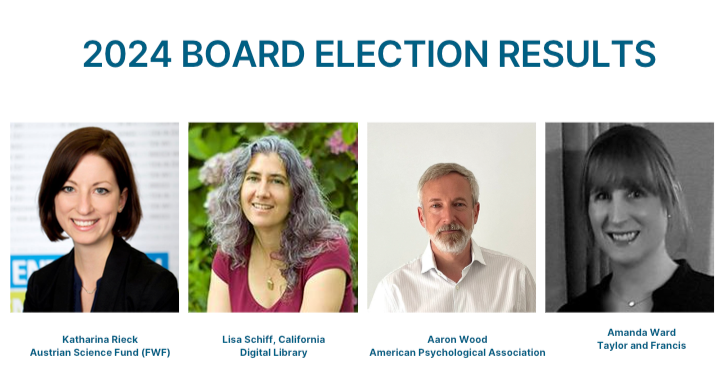The Crossref2024 annual meeting gathered our community for a packed agenda of updates, demos, and lively discussions on advancing our shared goals. The day was filled with insights and energy, from practical demos of Crossref’s latest API features to community reflections on the Research Nexus initiative and the Board elections.

Our Board elections are always the focal point of the Annual Meeting. We want to start reflecting on the day by congratulating our newly elected board members: Katharina Rieck from Austrian Science Fund (FWF), Lisa Schiff from California Digital Library, Aaron Wood from American Psychological Association, and Amanda Ward from Taylor and Francis, who will officially join (and re-join) in January 2025. Their diverse expertise and perspectives will undoubtedly bring fresh insights to Crossref’s ongoing mission.
The meeting started with a recap of our mission and priorities. Ed Pentz reiterated the Research Nexus vision of increasing transparency of the connections that make up the scholarly record and underpin the research ecosystem.












